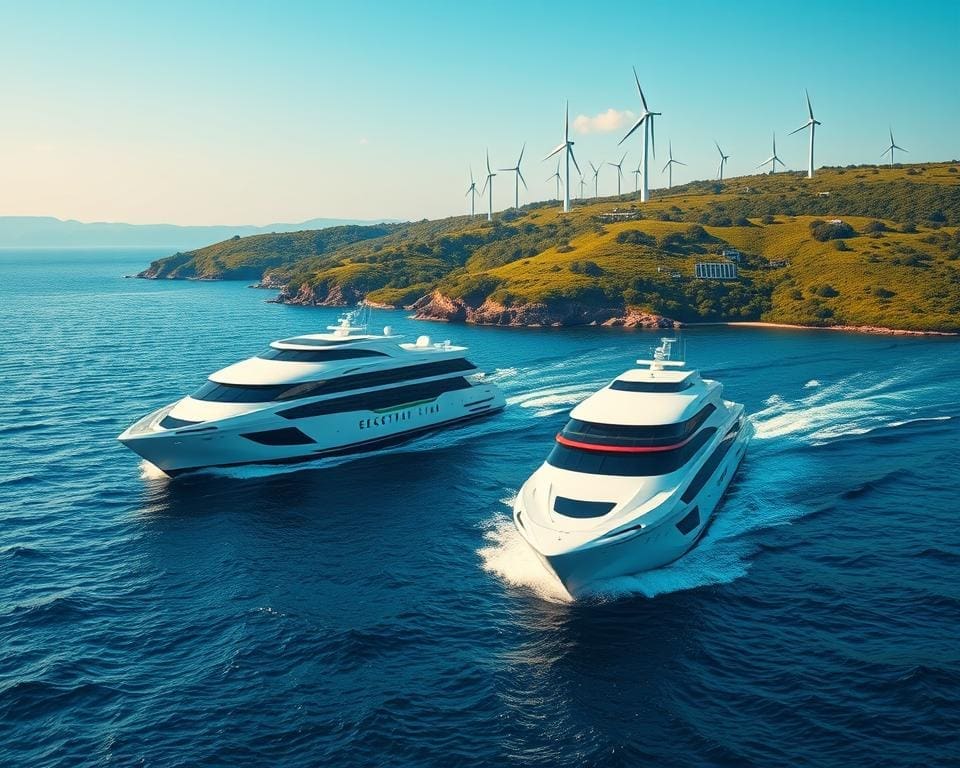The maritime industry is at a crucial crossroads, with an urgent need to embrace environmentally friendly practices. The Future of Electric Ships in Sustainable Shipping marks a significant shift towards greener alternatives, as electric vessels offer a promising solution to drastically reducing carbon emissions. Currently, the shipping sector contributes around 2-3% of global greenhouse gas emissions, highlighting the critical importance of adopting sustainable shipping methods. Industry pioneers like Maersk and Rolls-Royce are spearheading the development of electric ships, paving the way for innovation in maritime sustainability. As policies around climate change tighten, the role of green shipping solutions becomes clearer, and the transition to electric ships is not just beneficial; it’s essential.
Transforming the Maritime Industry with Electric Ships
The advent of electric ships marks a pivotal moment in transforming the maritime industry. As the world grapples with climate change, electric vessels are emerging as key players in sustainable shipping practices. Their implementation offers a range of benefits geared towards enhancing efficiency and reducing environmental impact.
The Advantages of Electric Vessels
Electric vessels present numerous advantages that positively influence operational effectiveness. Notably, these ships consume less fuel, which leads to:
- Lower operational costs due to reduced energy expenditure.
- Minimal maintenance requirements, enhancing reliability.
- Quieter operations that help protect marine life.
Impact on Shipping Costs
Embracing electric technology can significantly offset shipping costs. The potential savings linked to fuel efficiency, coupled with decreasing regulatory compliance expenses, can reshape financial models in the maritime sector. As the industry evolves, these financial incentives encourage more stakeholders to consider electric vessels as a viable alternative.
Technological Innovations Driving Change
Progress in future shipping technology is critical to the widespread adoption of electric ships. Breakthroughs in battery technology, particularly from companies like Wärtsilä, are setting the groundwork for viable electric solutions. Additionally, advancements in artificial intelligence for energy optimisation play a decisive role in fine-tuning vessel operations, marking a crucial step in sustainable shipping.

The Future of Electric Ships in Sustainable Shipping
The maritime industry stands on the brink of transformation as it embraces electric vessels integrated with renewable energy solutions. This shift towards eco-friendly shipping trends is crucial for reducing emissions and promoting maritime sustainability. Innovative approaches to harnessing renewable energy not only facilitate cleaner operations but also inspire a collective effort towards a greener future.
Integrating Renewable Energy into Shipping Practices
Adopting renewable energy shipping practices can significantly enhance operational efficiency. Technologies such as solar panels and wind-assisted propulsion are beginning to see increased implementation in new ship designs. By utilising these renewable resources, fleet operators can lower fuel consumption and decrease their carbon footprints. Ships employing these technologies can operate more sustainably while meeting the rising demands for eco-friendly shipping solutions.
Shaping Policy and Regulation for a Greener Future
International collaboration is paramount for shaping policies that support the future of electric ships. Initiatives led by the International Maritime Organization (IMO) focus on establishing regulations aimed at facilitating emissions reductions across the global shipping industry. Policymakers play a vital role in creating frameworks that encourage investment in green technologies. The expectation is for these regulations to not only uplift maritime sustainability but also set new global shipping standards that promote environmental stewardship.
Emerging Trends in Green Shipping Solutions
The maritime sector is witnessing emerging trends that signify a monumental shift towards green shipping solutions. As sustainability becomes a cornerstone of industry practices, advancements in hybrid electric systems are gaining traction. These innovations herald a new era, where electric ships are not just the norm but are leading the way towards a cleaner, eco-conscious future.
Leading companies such as EDF and Siemens are spearheading research into alternative fuels, particularly hydrogen, which provide exciting prospects for future shipping technology. The potential application of these fuels in maritime operations is vast, transforming how vessels are powered. Furthermore, the trend of retrofitting existing ships with electric capabilities is proving pivotal in the quest for sustainable shipping, pushing older vessels to meet modern environmental standards and thereby extending their life while minimising waste.
Complementing these technical advancements, the role of industry partnerships and collaborative initiatives cannot be overstated. They are instrumental in driving innovation and standardising practices within the sector. As these emerging trends continue to evolve, they pave the way for a thriving ecosystem where green shipping solutions are not merely an aspiration but a concrete reality, ensuring that the future of maritime transport is sustainable, efficient, and environmentally friendly.








